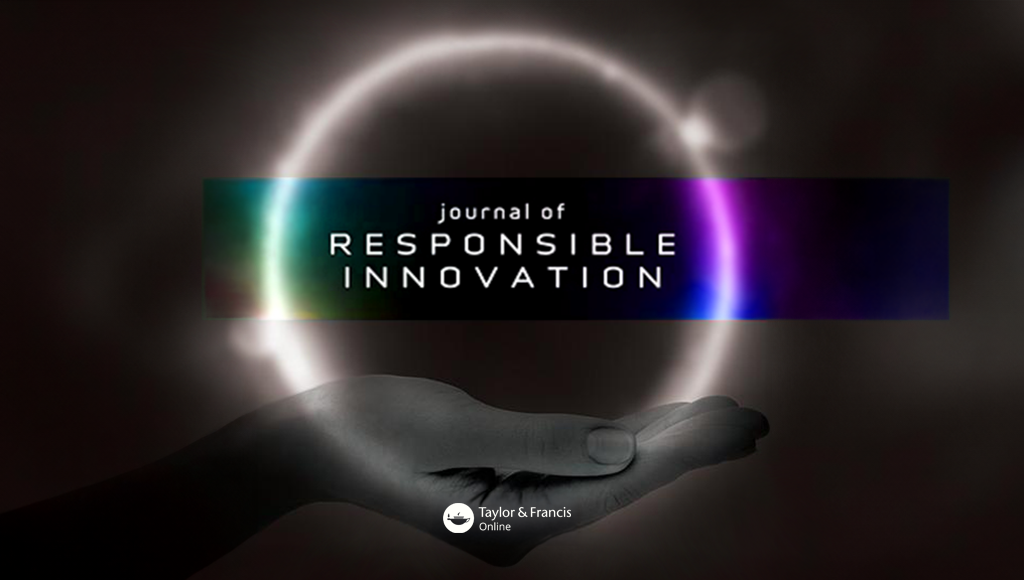One of the central aims of responsible innovation is to promote reflexivity, and in this post I would like to shine some light on recent Journal of Responsible Innovation articles that dive a little deeper into this ‘pillar’ of RI practices.
In the recently published (2025) The roles of responsible innovation researchers in research projects, Bernd Carsten Stahl, Adebowale Owoseni and Carolyn Ten Holter aim to promote reflexivity in RI researchers themselves, which for an RI researcher such as myself who has made reflexivity a key component of their work, makes for interesting reading.
The authors ask a simple question: What are the perceived roles of RI researchers in research projects? Or in other words, how do individual RI scholars perceive their roles in their research and the projects they may find themselves participating in?
Stahl and colleagues explain that the investigation that led to the publication of this article is part of a broader work in progress. This particular set of findings is the result of an exploratory approach (informed by literature review) of researcher roles. The authors develop a conceptual framework that aims to understand how RI researchers collaborate within a multidisciplinary research context, a framework that is then empirically investigated.
I find one of the major findings particularly interesting: the roles that RI researchers adopt point to a particular direction or interpretation of RI. This simple statement may be more important than it first appears, as participants in this research (RI researchers) see themselves as an integral part of the broader research projects they are part of and seek to influence from inception to conclusion.
The authors propose these five propositions.
Proposition 1: There are recognizable clusters of self-described roles among RI researchers.
Proposition 2: The self-described role of the RI researcher has an influence on their expected impact on the project.
Proposition 3: Researcher demographics have an influence on their self-described roles.
Proposition 4: The adoption of a critical stance influences RI scholars’ roles in projects and their expected impacts.
Proposition 5: Characteristics of research projects influence RI scholars’ roles and impact.
Stahl and colleagues are not alone in calling for reflexivity within RI research though. In a previous post I reviewed another JRI article, Slow Innovation: the need for reflexivity in Responsible Innovation (RI), in which Marc Steen reflects upon several personal experiences working as an RI practitioner that have led him to advocate for Slow Innovation as an alternative to the need for speed, the primacy of efficiency and the assumption that faster is better.
Reflexivity is seen as the driver of this proposed form of slow innovation which Steen presents as a tool for the improvement of current RI approaches.
Returning to 2024, the Journal carried Responsible innovation is not comfortable: a call for grounded, embodied reflexivity when doing RI from Karly Ann Burch, Susanna Finlay-Smits and Tara Roberson.
This short collective writing experiment shows how joint reflection on experiences of discomfort in RI can be helpful in seeing patterns across experiences and therefore illuminating insights that one person may not have recognized on their own.
As we might conclude, the title ‘Responsible innovation is not comfortable’ aims to provoke the use of the discomfort often felt by researchers (which is often related to their possible influence on and upholding of unjust power structures) as an analytic tool for critical reflection. They raise the following questions drawn from their research in Australia and Aotearoa New Zealand:
Where is the RI project physically located? Who are the Indigenous peoples of that place? What are the dominant social, political, economic, and land relations of that place? How does my social location and role within a research team affect my experience with discomfort? Who is usually responsible for handling the discomfort that inevitably arises in the project and where does it come from? How do we each contribute to (or hinder) the creation of more ethical, equitable, and anti-colonial research cultures and technofutures?
If all of this has whetted your appetite for some deeper thinking about reflexivity as a topic in itself, take a look at Radical reflexivity, experimental ontology and RRI from Robert Braun (also published in 2024 and part of the Critique in, for, with, and of Responsible Innovation collection).
Braun promotes the idea that radically reflexive forms of inquiry could take the concepts of lack (something missing in society or something that could be improved) and a proposed solution (to the perceived or socially constructed lack) out of the framings of RI by moving attention to the assumptions, practices and bodies of knowledge that stabilize worlds.
This is a conceptually complex paper that refers to ethnomethodology and Harold Garfinkel (one of my heroes from my studies in sociology many years ago), an absolute joy to come across in a journal that we at the Bassetti Foundation have had the pleasure to follow and participate in since its inception.
















